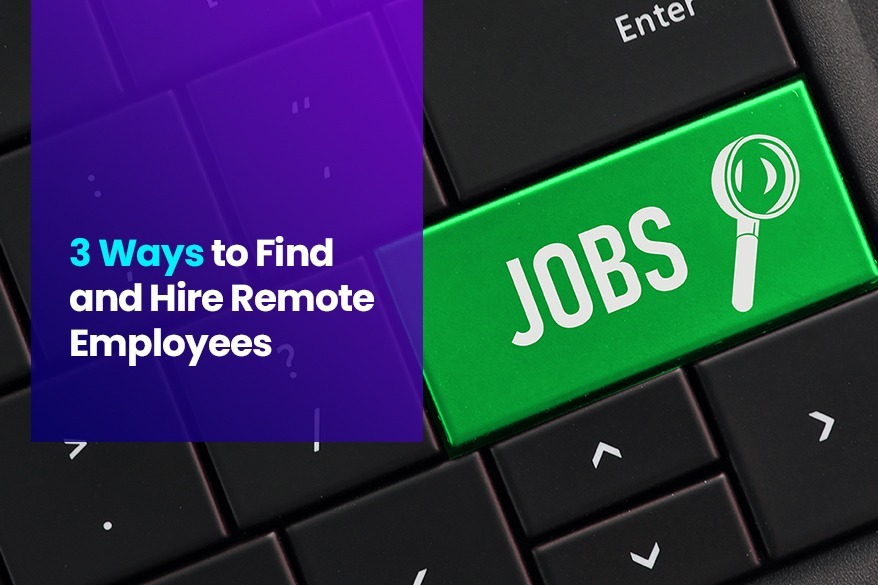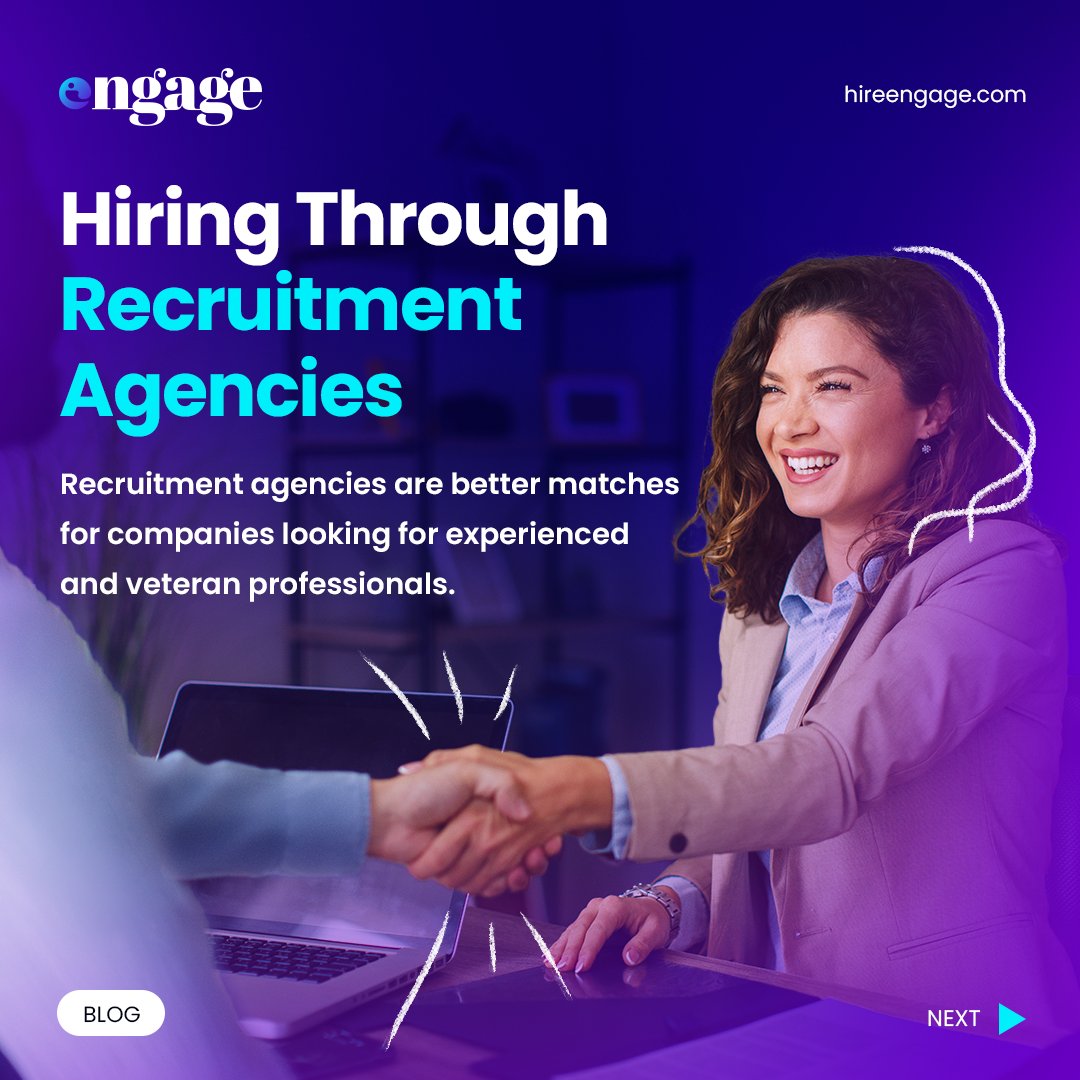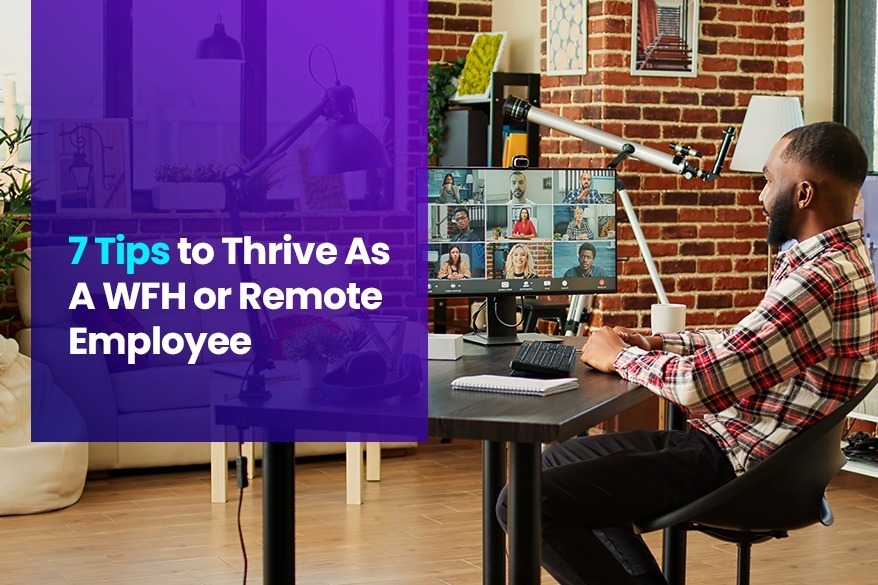
Finding remote employees and professionals isn’t much different than doing so in a traditional sense. In a way, it’s become even more efficient and convenient for both HR and job seekers.
The interconnectedness of the world, the advancements in recruitment technology, and blurred boundaries of a global candidate pool has made it easier to attract, screen, and hire professional from every corner of the world. The online recruitment process has been streamlined into three distinct channels for landing the most suitable candidates for any and every position.
These said channels are 1) Posting on Job Marketplaces, 2) Hiring through Recruitment Agencies; and 3) Working with a Managed Services Company.
Each hiring avenue has its own pros and cons and will suit different companies based on their needs. However, before even making comparisons, HR departments need to prepare their pre-hiring requirements and decide on the particularities of their needs.
Identifying hiring needs and job specifications will determine how and where to find the best remote employees.
With every recruitment season comes an array of job vacancies HR professionals need to fill. To avoid being overwhelmed with the amount of work needed to fill these positions, it’s important to identify, flesh out, and document the company’s hiring needs.

To be exact, HR needs to 1) Outline each job description, 2) Set a compensation package, and 3) Decide on the employment type.
By working out each of these pre-hiring specifications, it will be much easier to know which online hiring channel to use to land on the most promising company hires.
- Outline each job description for all company vacancies.
Hiring online can be tricky if the job description for candidates isn’t as clear as possible. Because the initial screening of resumes is the first step in pooling candidates, hiring managers need to create job descriptions that reflect the daily duties, responsibilities, tasks, qualifications, and working schedules that candidates need to meet.
Picture what the candidate’s day will look like if potentially hired. What are they expected to produce? What are their KPIs? To whom do they report? Are there any educational attainments or certifications required to be considered?
Put the relevant information on the job description so that it will be easier for both you and the candidates to know who are qualified for the job. Doing this saves you a lot of time by not having to interview candidates that don’t even have the qualifications to assume the vacant role.
- Set a competitive compensation package.
Remote employment opens companies to diverse professionals globally, but this also means candidates have a bigger application pool and thus, more bargaining power when it comes to their compensation. Hiring managers need to find the balance in being firm and flexible when it comes to compensation.
Offering a competitive compensation package isn’t just limited to higher salaries; companies with smaller budgets can offer candidate more rest days, flexible working schedules, opportunities for promotion, or performance bonuses.
Coming in strong with a very attractive compensation package also helps in narrowing down your hiring channels because each one has different policies and standards when it comes to their platform and recruitment fees. Keep this in mind when budgeting for hiring operations to find the optimal pooling channel.
- Decide on the employment type of each job vacancy.
Not all remote employees need to be permanent workers at the company. Some can only be hired on a contractual basis, others can be freelancers that can be called upon when a specific project arises, others can be on monthly retainers. It really depends on the needs of each organization.
When hiring remote workers, HR can filter out which candidates are open to specific employment arrangements. It can be frustrating to spend time interviewing professionals that aren’t amenable to the employment type the vacancy requires.
Furthermore, not all hiring platforms and channels are open to different employment types. Some are more partial to permanent workers; others prefer to manage freelancers for a recurring fee. Decide what kind of arrangement works best for the hiring budget and the needs of team.
Once the particulars of these matters are settled, it will be easier to find the perfect match for hiring platforms. Each platform can maximize hiring budgets, pool candidates, and facilitate the hiring process based on the set criteria.
Find remote workers through job marketplaces, recruitment agencies, and managed services companies.
Now that there’s clear criteria for comparing online hiring platforms for remote workers, HR managers need only match with the best possible route to find their next superstar hires.
- Posting at Job Marketplaces
Best for finding candidates that are:
- Entry- or associate-level professionals
- Open to lower compensation
- Looking for long-term or short-term employment
Job marketplaces are usually open-to-everyone sites that are free or charge small posting fees. Literally anyone can post and find jobs on these sites or social media pages. For unexperienced workers, it’s usually one of their go-to places to look for employment because to them, it’s mostly a numbers game to find their first or second jobs.
Companies with small hiring budgets and are looking for candidates that can be trained, mentored, and are more flexible with salaries can often find success in hiring remote employees on marketplaces. It’s fast, convenient, and there will be hundreds of potential candidates to choose from.
The downside is that marketplaces don’t usually have technologies that screen resumes and filter unqualified candidates. Hiring managers will have to do manual checking and messaging. It can be a tedious process, but the accessibility of the platform can be perfect for small start-ups and family-owned businesses.
- Hiring through Recruitment Agencies
Best for finding candidates that are:
- Mid- to executive level professionals
- Prefers competitive compensation
- Looking for long-term employment
Recruitment agencies are better matches for companies looking for experienced and veteran professionals. It would be better to hire agencies that specialize in remote hiring as they often have the process and software needed to screen candidates.
Agencies do take hiring fees, but they often produce favorable results. They will screen, test, and even pre-interview applicants before sending hiring manages that best ones to not waste time. They also are experienced in identifying candidates that will fit into company culture and will work well with others.
Working with a recruitment agency is the most convenient option for most companies since they only pay a one-time fee to find the most compatible remote employees. They can focus on assessing candidates for the specific of the job because the agency has already vetted applicants. It’s a costly but efficient route suited to filling in highly specialized positions.
- Working with a Managed Services Company
Best for finding candidates that are:
- Executive-level professionals and experts
- Firm on high salaries
- Looking for flexible employment or consulting arrangements

Managed services companies are a bit new in the recruitment agency world. While they also look for candidates, they hire these same applicants themselves and outsource them to companies looking for employees. This is a very attractive option for organizations looking for remote employees from different countries because oftentimes managed services companies will handle all paperwork, legal documents, and payroll.
High-level professionals and experts looking for remote work will often be under the employ of these companies because it allows them to work with or consult for multiple companies. Their field expertise and experiences make them valuable hires to the managed services companies because they can charge fees for their employed professional’s services.
This would be the costliest route of the three mentioned here for hiring remote employees. However, companies that have big budgets and are looking for expert-level outputs can rely on this channel because they won’t be shouldering much of the risk. If unsatisfied with the remote employee’s performance, they can request a replacement immediately without doling out a severance package. Think of this channel as a concierge for professionals –convenient, expensive, and highly effective.
Finding and hiring the best remote employees doesn’t have to be a difficult task. Hiring managers just need to figure out the best recruitment channels and services that best fit their company’s needs. Try out a few different platforms and see which yield the best results. At the end of the day, hiring remote employees is a journey in perfecting the digital employment process of an ever-changing professional world. Best of luck to you!
Looking to hire your own remote employees? Scale your digital business and hire the best professional with Engage! Our years of experience in hiring remote employees have made us experts in the field of virtual work.
Tell us what you’re looking for and we’ll send over the best candidates to help your business succeed—whether it’s a single employee or a team! Learn more about how we can help with your next career move.



